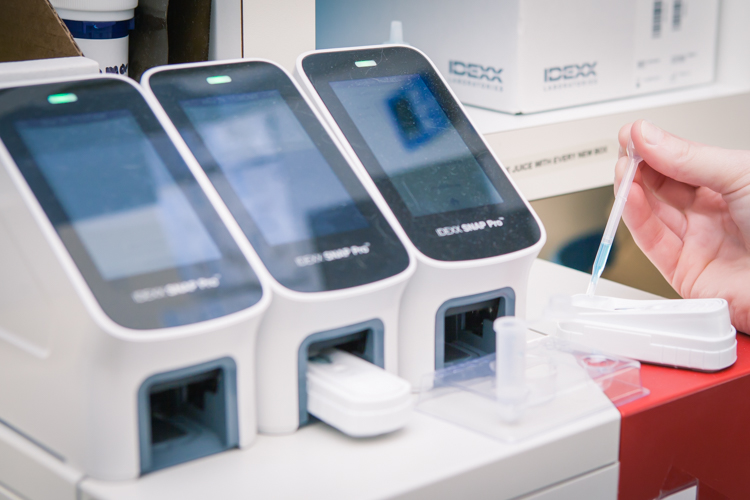Heartworm Testing

At Animal Medical Clinic, we recommend annual testing for heartworms and a lifelong preventive treatment program. Testing for the presence of heartworms is quick, easy, and economical, and preventive treatment is much more cost effective than medical care for an infected animal.
Heartworm disease is a serious and possibly fatal condition that can affect indoor and outdoor companion pets. Heartworm larvae are transmitted to healthy animals by mosquitoes that have bitten infected animals. Without the protection provided by a preventive treatment program, heartworms can eventually affect your pet's cardiovascular health.
Most infected dogs are asymptomatic or show no signs of infection until advanced stages of the disease, therefore we recommend scheduling an annual test to ensure your pet is heartworm free. If your dog’s test results come back negative, our veterinarian will prescribe a preventive treatment that you will need to administer year-round for the rest of the animal’s life. These preventive medications come in several forms, including topical applications, injectables, pills, and tasty treats.
Treatment for heartworms is extensive and expensive. While undergoing medical treatment, your animal must be kept contained and under strict exercise limitations to avoid putting stress on the heart and lungs. This can last up to 8 weeks.
The medication used for heartworm infection in dogs cannot be used on cats, therefore, prevention is the only way to protect your cat from the effects of heartworms. Cats should be put on a preventive treatment and tested as recommended by our veterinarian. Cats are not a natural host for heartworms however, just a few can make a cat very ill. Symptoms in cats mimic other feline diseases. If your cat tests positive for heartworms, he or she can be helped with good veterinary care and a long-term management plan.
At Animal Medical Clinic, we routinely test for heartworms at our yearly appointment, however if you are noticing a change in your pet’s behavior and appetite, please bring them in to be assessed by our doctor.